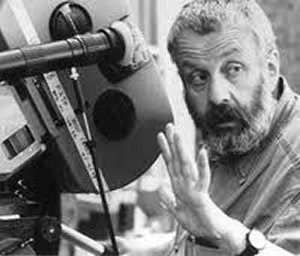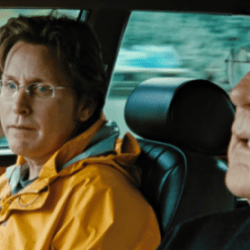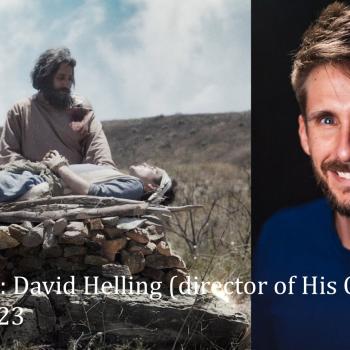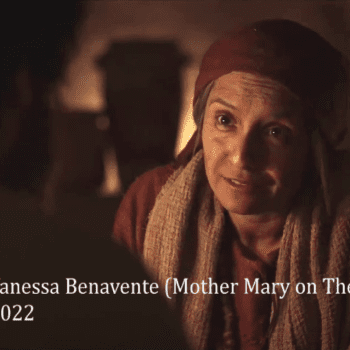 Mike Leigh’s films are a paradoxical mix of tight directorial control and letting the chips fall where they may. He begins each film by gathering a cast around a basic premise, then getting the actors to improvise a storyline. But once a character’s next move has been determined, everything is scripted, rehearsed and executed with exacting precision. The result is an extremely professional work in which neither you nor the filmmakers ever quite know what’s going to happen next.
Mike Leigh’s films are a paradoxical mix of tight directorial control and letting the chips fall where they may. He begins each film by gathering a cast around a basic premise, then getting the actors to improvise a storyline. But once a character’s next move has been determined, everything is scripted, rehearsed and executed with exacting precision. The result is an extremely professional work in which neither you nor the filmmakers ever quite know what’s going to happen next.
Given his approach, you might expect all his films would turn out like Naked, the rambling, off-beat hit that rocketed David Thewlis into the front ranks of Hollywood character actors two years ago. But Secrets & Lies follows a relatively tight plot: Hortense (Marianne Jean-Baptiste), a 27-year-old black optometrist, goes looking for her birth mother, and is shocked to find that Cynthia (Brenda Blethyn), a factory worker living in one of London’s poorer sections, is white. Cynthia frequently fights with her other daughter, the short-fused Roxanne (Claire Rushbrook), and she almost never sees her brother Maurice (Timothy Spall), who’s moved to the suburbs with his wife (Phyllis Logan) and his successful photography business. But when Maurice offers to throw a barbecue party for Roxanne’s 21st birthday, Cynthia accepts the invite, asking if she can bring her secret “friend from work” along.
Secrets & Lies borrows some of the themes Leigh explored in Life Is Sweet: the relationships between mothers and daughters and, in a more indirect way, between sisters. Though Maurice plays a pivotal role in the proceedings, this is in many ways a film about women, which may come as a surprise to those who associate Leigh with the casual rapists he filmed in Naked. But Leigh, talking to The Ubyssey from Toronto, will have none of that.
“People are people,” Leigh says, as if the point was obvious. “I tell stories about men and women and, you know, the job is to be sensitive about whoever they are and make each character the centre of his or her universe, and to make them real and truthful and sympathetic. I mean, it’s weird. With Naked, I was accused of being a misogynist and makmg a male film from a male point of view, and yet it’s true that I’ve made lots of films which you could say are made, in a sense, from a female point of view. The truth is that I try to tell films about people, and that’s all I can say about it, really.”
Secrets & Lies is at least the third film this year in which a main character discovers that one of his or her parents is of another race, but Leigh sounds surprised when I suggest that, unlike A Family Thing and Lone Star, his film sidesteps racial themes in order to focus on the way these people relate as people.
“Certainly I think my film deals very much with racism, in the sense that when [Hortense] is taken ’round to meet them, they react to her in all kinds of ways. They do not behave in an obviously racist way, but that is a very conscious and deliberate racial statement. Their reaction to her is concerned with all kinds of things other than that, because [the racial element] really pales in significance beside the things that really concern them. They don’t go, ‘Uh-oh, nigger,’ all sorts of other stuff is on the go. And in the end, what we are saying through the film is they’re connecting as people, and therefore that’s a statement about racism.”
Alright, so deliberate statements do have a part to play. I ask if it’s significant that Hortense decides to track down her birth mother without enlisting the help of professional social workers. “Yes, it is,” Leigh replies. “She’s playing with fire, but people do do that. Sure it’s a risk, that’s part of the tension of what happens in the story, isn’t it? You know she’s doing that, and you just know it’s dangerous.”
But is Leigh making a statement about the need to take such risks, or the way in which playing it safe — for example, by going through social workers — might just help to preserve the secrets and lies his film eschews? “That’s a little bit academic, it’s hard to say, really. I don’t know where that would lead us, really. Are you a student?”
Caught somewhat off guard by this tactic, I reply in the affirmative.
“What are you studying?”
History, religious studies and film, I reply.
“Okay. So you’re not heading towards being a social worker, are you?”
No, no, I assure him, I was just wondering if it had been a conscious decision not to go the professional route —
Leigh interrupts me. “Was it a conscious decision? Well, of course it was a conscious decision. I don’t understand what you mean, it couldn’t be an unconscious decision. What do you mean is it a conscious decision?”
Well, was the story set up that way to make a statement about professional social agencies, the way he made a statement about racism?
“No, that was a character decision. That is what that woman would do. In a quite independent way, she goes on with it. It’s not of itself a comment on professional social workers. Any comment on them is already made in the scene where you see that woman.”
What that comment, or any other, might be exactly is hard to tell sometimes, since Leigh frequently turns the question back on the interviewer: “Do you think that?” and “What do you think?” are recurring motifs. Just as Leigh solicits the improvisations of his cast to find out what the characters will do next, he wants viewers to interpret the film for themselves and make their own guesses as to the fate or background of everyone involved.
He reacts strongly, though, to the notion expressed by some that Secrets & Lies, with its curiously hopeful ending, is somehow too tidy.
“I think that’s crap. I think it’s the kind of thing that certain kinds of cerebral and rather anal people say. It isn’t. In fact, there’s quite a little bit of untidiness left there in the film. And in any case, even if there weren’t, what is wrong with a piece of work that, in fact, in a slghtly metaphorical way, explores or expresses something positive? I suppose such people would prefer the end of Naked. It’s a different experience, but it’s as valid because life is a complex thing, because there are all lands of sides to how we live and feel.”
Indeed. And it is Leigh’s remarkable ability to capture all those sides that could make Secrets & Lies the most powerful film released this year.












